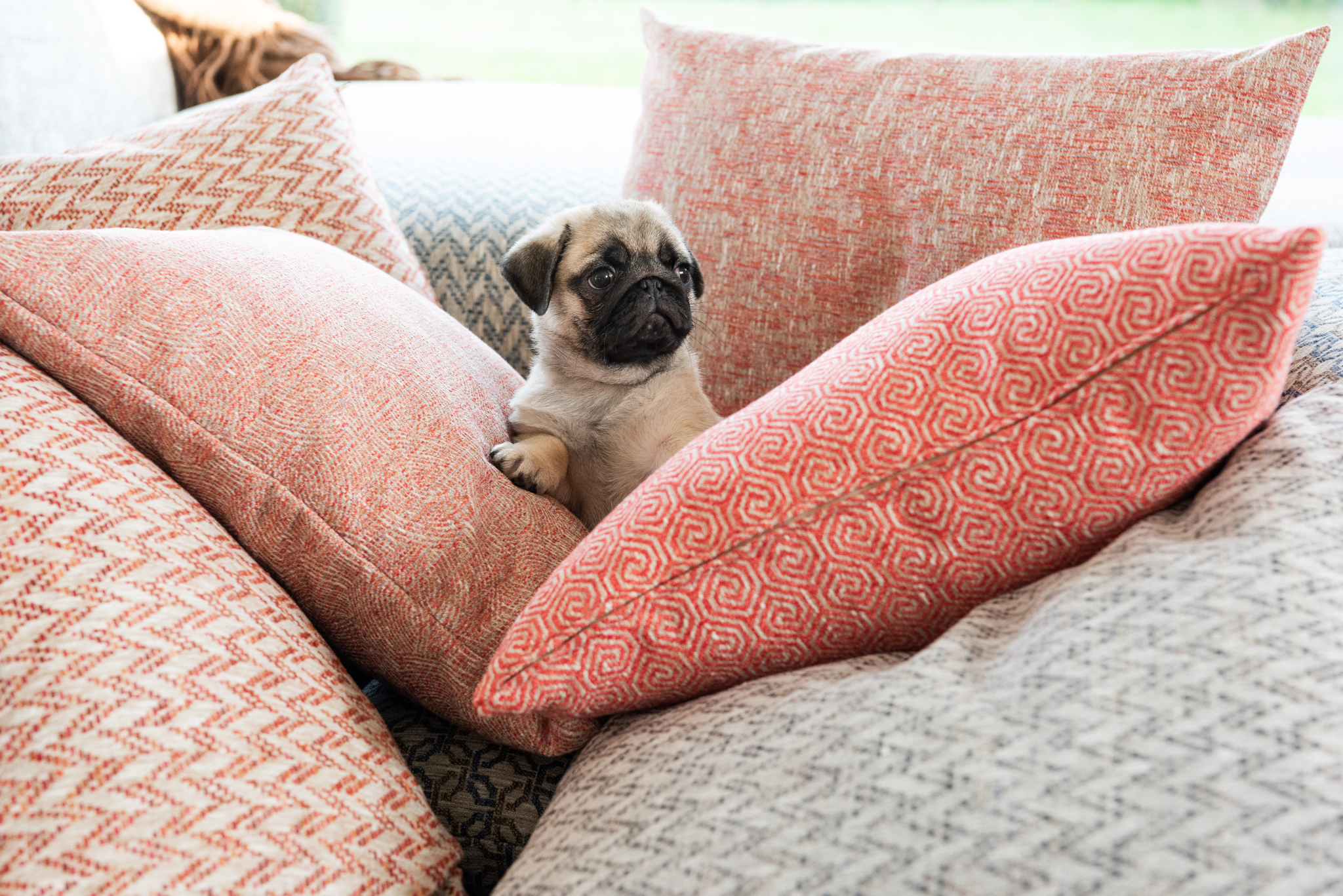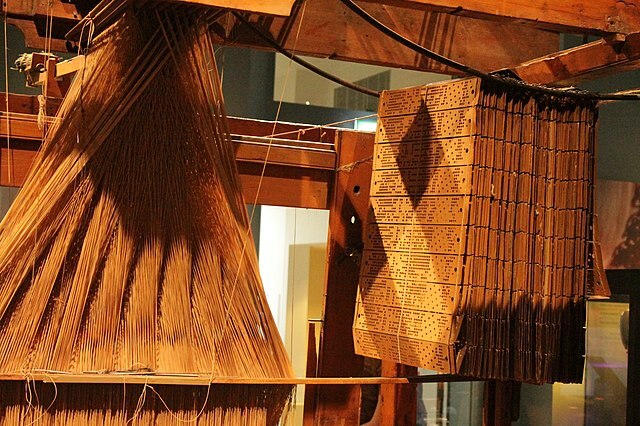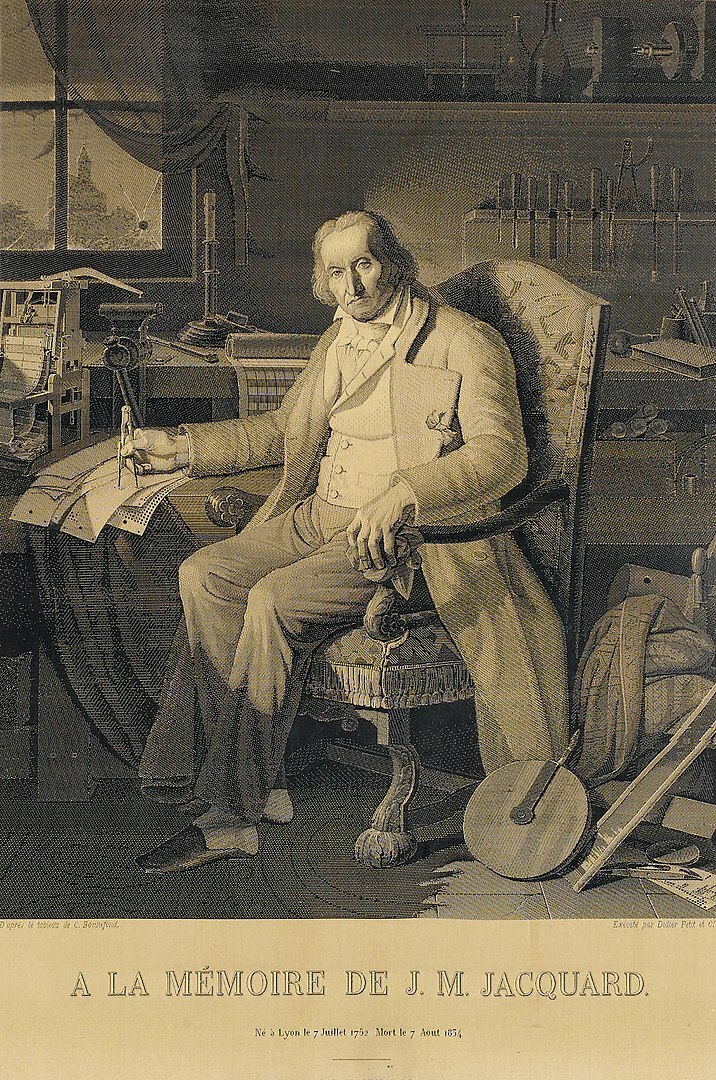Explainer: what are jacquard fabrics?
The jacquard machine simplifies the process of manufacturing textiles with complex designs such as with brocade and damask. But what is jacquard fabric? And what does it have to do with a machine?
Today we’re putting contemporary textiles production techniques in perspective by exploring this complex and fascinating piece of textiles history.
Jacquard fabric: a straightforward definition
Our in-house production team describes jacquard fabric as:
A jacquard is a fabric has a design or motif woven into the construction of the weave. Jacquards come in an array of designs, from dramatic ornamental damasks, to florals, stripes, chevrons, or geometric patterns. Jacquards are woven on a special and complex loom which operates by lifting and lowering yarns to determine the arrangement of warp and weft yarns creating the desired pattern or effect.

The story of the jacquard loom
The jacquard machine was invented in 1804 by a French weaver called Joseph Marie Jacquard, who based it on earlier innovations by two other French textile workers and an innovative artist.
The term ‘jacquard loom’ is misleading, as the jacquard machine is a separate, special machine that can be fitted to an existingloom. The loom with the addition of the machine is then referred to as a jacquard loom.
How the jacquard loom works
The jacquard machine was originally mechanical and controlled by punched cards in a chain sequence. The cards held the pattern data on them – each card held enough information to create one row of the finished fabric design.

A Jacquard loom showing information punchcards, National Museum of Scotland.
Photograph by Stephencdickson - Own work, CC BY-SA 4.0
This was an extraordinarily important invention as it essentially automated the sophisticated patterning of woven fabrics, allowing for infinite designs of pattern weaving.
The legacy of jacquard reaches far outside of the textiles industry
There is a famous portrait of the inventor, Joseph Marie Jacquard, woven in silk on a Jacquard loom that required 24,000 punched cards to create (1839). This portrait purportedly inspired Charles Babbage, the ‘father of the computer’, deeply in his work. Babbage used the exact same kind of perforated card design in his Analytical Engine – using cards like this were an incredibly important step in the history of computing hardware.
This portrait purportedly inspired Charles Babbage, the ‘father of the computer’, deeply in his work. Babbage used the exact same kind of perforated card design in his Analytical Engine – using cards like this were an incredibly important step in the history of computing hardware.
FibreGuard jacquard collections: exceptional performance fabrics
This attention to detail is why our premium-quality jacquard upholstery fabrics set a global furnishing fabrics standard. They are resistant to accidental stains, abrasion, pilling and fading, equipped to perform in the most demanding environments even withstanding everyday wear and tear.

This portrait of Jacquard was woven in silk on a Jacquard loom
and required 24,000 punched cards to create (1839).
It was only produced to order.


 English
English  ελληνικά
ελληνικά
0 comment(s)